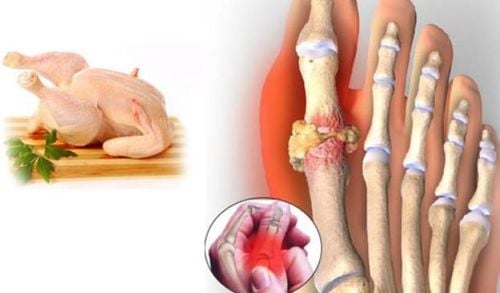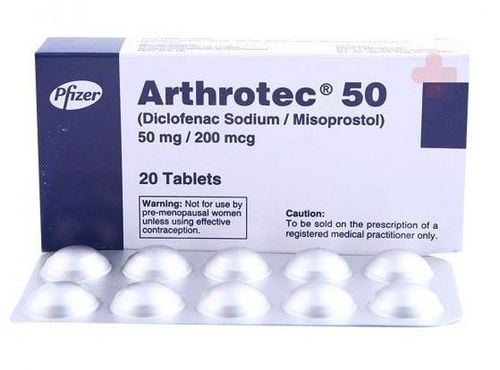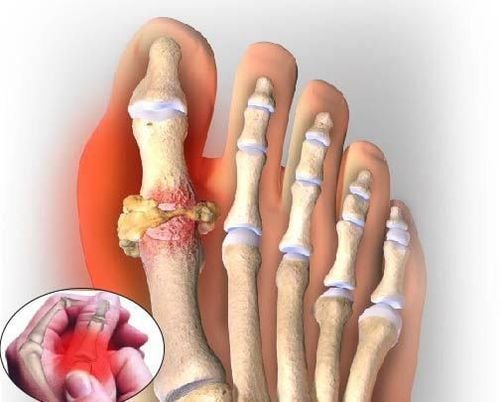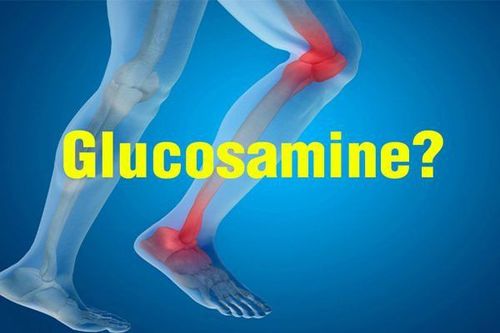In addition to drug treatment, diet plays a crucial role in both preventing and treating gout. This raises the question: What vegetables should patients with gout avoid, and which ones are safe to eat?
1. What is Gout?
Gout is a type of arthritis characterized by pain, inflammation, and sudden swelling in the joints. It occurs when there is an excess of uric acid in the blood. Elevated uric acid levels can lead to the formation of uric acid crystals that deposit in the joints, resulting in inflammation, swelling, and intense pain.
Most individuals with Gout have bodies that struggle to effectively eliminate excess uric acid. This accumulation may be attributed to genetic factors or dietary choices.
2. Impact of food on Gout
Certain foods are high in purines, which can lead to increased levels of uric acid in the blood, triggering gout attacks. For healthy people, foods containing many purines do not have harmful reactions in the body. However, for people with Gout, because the ability to remove excess uric acid from the body is no longer effective, consuming too much purine will cause uric acid to accumulate, causing Gout.
Therefore, to help prevent Gout flares, it is essential to limit the intake of foods that are high in purines.
Foods that are high in purines include red meat, animal organs, seafood, alcohol, and certain vegetables. Recent studies have indicated that high-purine vegetables do not significantly increase the risk of Gout. Nevertheless, patients should still limit their intake of these vegetables to avoid unwanted increases in blood uric acid levels.
3. Vegetables Recommended for Gout Patients
Most vegetables have very low purine content, but they are very rich in fiber, vitamins A and C, and essential minerals such as calcium and iron, etc. Including a variety of vegetables in the diet helps gout patients maintain balanced nutrition and supports the overall treatment process effectively.
4. What vegetables should you avoid if you have Gout?
As mentioned earlier, individuals with Gout should limit their intake of vegetables that are high in purines. Although these vegetables are less likely to trigger Gout flares, they can still contribute to an increase in uric acid levels in the blood. Foods to consider limiting include mushrooms, peas, spinach, bamboo shoots, bean sprouts, asparagus, etc.
5. Can people with Gout eat water spinach?
Individuals with Gout, joint pain, high blood pressure, kidney and urinary tract infections caused by stones, and patients with skin wounds should limit their water spinach intake. Because water spinach can promote the proliferation of cells, which can lead to keloid scars. It's also important to note that water spinach may carry a parasite called intestinal flukes, which can enter the body if consumed raw or not thoroughly cooked.
6. Can people with Gout eat Malabar spinach?
Malabar spinach is a popular vegetable during the summer because it has cooling properties. However, according to Traditional Medicine, individuals with diarrhea or kidney stones should avoid consuming this vegetable. Additionally, Malabar spinach has a high purine content, which can be converted into uric acid once ingested. When the concentration of uric acid in the blood becomes elevated, it can lead to gout.
7. Can people with Gout eat Star gooseberry?
According to Traditional Medicine, Star gooseberry is a herb known for its cooling properties and is rich in vitamins B1, B2, and B6, as well as potassium, calcium, and magnesium making it beneficial for the body. Individuals with Gout can consume Star gooseberry, but, like all foods, it should be eaten in moderation.
During Gout treatment, following a specific diet can greatly help reduce the frequency of flare-ups. Patients should avoid excessively eliminating foods that are deemed harmful, as well as consuming large quantities of foods that are considered beneficial. The key is to maintain a balanced diet and consume nutrients in appropriate amounts.
Please dial HOTLINE for more information or register for an appointment HERE. Download MyVinmec app to make appointments faster and to manage your bookings easily.













